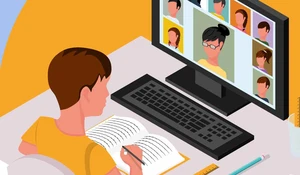Overcoming Technical Challenges in Online Learning for South African Students
The Rise of Online Learning in South Africa
Online education has transformed the South African education system, offering new opportunities for students to access learning from anywhere. However, technical challenges such as internet access, high data costs, and a lack of devices continue to hold many students back. Addressing these challenges is essential to ensure that online learning is a viable option for all.
Bridging the Connectivity Gap
Access to Reliable Internet
Connectivity remains a significant barrier for many South African students, particularly in rural areas where infrastructure is lacking. While urban students may benefit from faster internet speeds, rural learners often rely on inconsistent networks. Downloading educational materials for offline use or utilizing free public Wi-Fi at libraries and community centers can help mitigate this issue. Efforts to expand internet access to underserved areas are also crucial.
Tackling High Data Costs
South Africa’s high data costs make online learning unaffordable for many students. To address this, some educational institutions have partnered with telecom providers to offer zero-rated or discounted educational data bundles. Students can also reduce data consumption by using low-bandwidth platforms and turning off unnecessary applications during lessons.
The Challenge of Access to Devices
Device Shortages and Shared Resources
Many students lack access to laptops, tablets, or even smartphones capable of handling online coursework. Sharing devices with family or friends has become a common workaround, but this is not a sustainable solution. Community initiatives, non-profits, and government programs providing affordable or donated devices can make a significant impact.
The Need for Long-Term Solutions
To ensure equitable access, educational institutions and policymakers must explore sustainable options, such as subsidizing devices or creating device loan programs. Businesses and NGOs also have an opportunity to contribute by offering affordable hardware or device donation drives.
Overcoming the Digital Literacy Barrier
While younger generations are often considered tech-savvy, many students struggle with using online learning platforms effectively. A lack of digital literacy can hinder their ability to participate in lessons, complete assignments, or troubleshoot technical issues.
Building Digital Skills
Offering free or low-cost digital literacy training can empower students to navigate online platforms confidently. Peer-to-peer learning groups and workshops organized by schools or communities can also help bridge this gap.
Navigating Load-Shedding and Power Outages
South Africa’s energy crisis adds another layer of difficulty for online learners. Frequent load-shedding disrupts live classes and prevents students from accessing materials.
Planning and Backup Solutions
Students can plan their study schedules around load-shedding timetables, but alternative power sources, such as portable chargers or battery-powered devices, provide a more reliable safety net. Institutions should also consider creating offline-accessible resources to support students during outages.
Addressing Emotional and Social Challenges
Staying Motivated in Isolation
Online learning can be isolating, and the lack of face-to-face interaction may affect students’ motivation. Establishing a daily routine, setting clear study goals, and creating a dedicated workspace can help students stay focused. Regular breaks and virtual interactions with classmates can also boost morale.
Improving Communication
Effective communication is critical in online education, yet many platforms fail to replicate the immediacy of in-person interactions. Students should actively participate in forums and discussions while institutions work to implement interactive tools that facilitate better engagement between learners and instructors.
The Way Forward
The technical challenges facing online education in South Africa are undeniable, but they are not insurmountable. With targeted interventions and collaborative efforts from students, educators, policymakers, and private organizations, these obstacles can be addressed. The goal should be to create a system where every student, regardless of their location or socioeconomic status, has access to high-quality online education.
Share This





